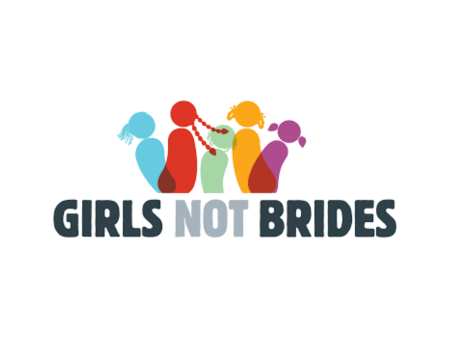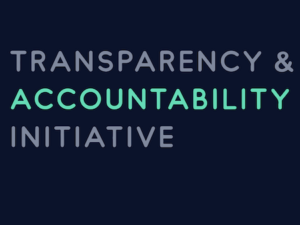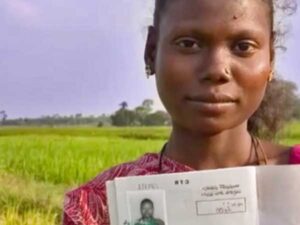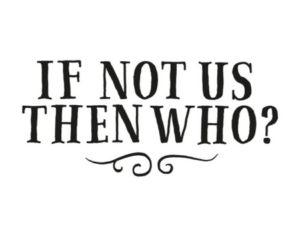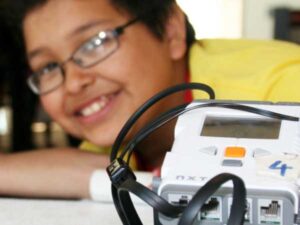Girls Not Brides is a global network of more than 1,600 civil society organizations committed to ending child marriage and gender equity across Africa, Asia, Europe, the Americas and the Middle East. They work with and support partner organizations in what’s working in social innovation to raise awareness about child marriage and campaign for legal and social changes.
Dr. Faith Mwangi-Powell of Girls Not Brides spoke with Ambika Samarthya-Howard on January 11, 2024. Click here to read the full conversation with insights highlighted.
Ambika Samarthya-Howard: Can you start by telling me a little bit about you, your organization, what your approach is, and what you’ve been working on.
Dr. Faith Mwangi-Powell: I’m Dr. Faith Mwangi-Powell and I’m currently the CEO of Girls Not Brides. We define ourselves as a global partnership to end child marriage. We actually believe we are the largest global partnership working on a single issue, working on ending child marriage. Right now we have over 1600 member organizations working across over a hundred countries. Our model really is to build national movements, national ecosystems, because we believe that the enormity of child marriage, it requires everybody to be engaged, because of the nature of it, the social norms aspect of it, the cultural practices aspect of it. It’s more of a social change if you like, and social change requires everybody to be on board so that there are no sanctions and there are no difficult challenges for people who are campaigning.
Our model is to build the movement. First of all, the global movement. Then, within countries where we have many organizations, we encourage them to build national movements, and we are now even moving to build regional movements. For example, in Africa we have the Africa Action Group, which is looking at evidence. In Asia, we are looking at partnerships across different countries, and we are looking at the same in Latin America. But the national groups, the national movements are the powerhouses for change, because we believe that change needs to happen locally. When we say it needs to happen locally, it needs to happen at all levels.
At the national level, governments need to be engaged so that they can enact the laws, they can enact the policies needed, they can also give money to what is needed. We believe change needs to happen at a sub-national level, so that those decision makers are involved. And we believe most importantly that change has to happen at the community level, because that is where actual child marriage happens. Child marriage happens in the homes. How can the homes and the communities be engaged at this level? We look at a very cross-cutting movement, cross-cutting partnerships, really deepening that change and championing the local actors, because they are the ones who understand their context and the opportunities for change. They are the ones who understand why they’re actually doing child marriage. And they are the ones who also have the solutions for change.
Our model is to build, to be a backbone organization. We see ourselves as a backboard organization pushing from the back, and change happens by the local actors at the forefront. That is how we work. As a CEO, I feel very privileged to work with all these partners across different layers and really facilitate and support. We see our role as more facilitative, providing thought leadership, providing the opportunities for networking, providing resources. We are giving some resources to the national movement, so that they can act, and providing the latest evidence of what is working and what is not working. That is the job we do as Girls Not Brides.
We are a global secretariat and the initial phase of our strategy was to build the movement. Now we feel the movement is big enough, so we are leveraging the movement. We are asking how this movement, the different levels I’ve talked about, really bring change for the girls? Because even if we are 10,000 people, 100,000 people, and child marriage is still where it’s at, then we are not succeeding. How do we continue to leverage this movement so that we can really see change at the girl level, and work at multiple entries so that we can foster change? That is our new strategy, deepening work at the national level and investing in the local champions who are working on collective action because we believe that is what is needed. That collective solidarity, that is what is needed to bring social change, and social change is what is needed to end child marriage.
Ambika Samarthya-Howard: My understanding is that your organization is regional, or focused on national work. You’re saying you do much more global work?
Dr. Faith Mwangi-Powell: We do both. We also do global advocacy. For example, we are working with organizations like the World Health Assembly to do the child marriage dissolution. We are working with the UN General Assembly on the Sustainable Development Goals resolution. We work at that level to continue creating the profile through global advocacy. We do that, and of course amplification through communication. But then, we also work at the national level, working in countries. For example, we have Girls Not Brides Malawi. It’s a network, it’s a partnership that we work through, which we support. That partnership is at the forefront of change in Malawi, and we support that. We have partnerships in Uganda, in Nepal, in Guatemala. Those partnerships are national ecosystems if you like. There are different partners, different people who have come together and created a national partnership or a national movement. Some of them are called Girls Not Brides. Others are just national coalitions. Those are the vehicles through which we deliver national change.
Ambika Samarthya-Howard: Do you consider yourself a direct service organization?
Dr. Faith Mwangi-Powell: No, we are not a direct service organization. The language we use is that we are a backbone organization which supports others at the frontline. We are kind of at the back, facilitating, enabling, bringing resources, bringing knowledge, evidence, bringing thought leadership, bringing a platform for amplification of change and acting as a connector, convening all these so that we learn together. We are not a service delivery, we are more the backbone, really pushing and facilitating and enabling our members and partners to work at the forefront, because we cannot work everywhere. We are a small secretariat of 50 people. We are not able to work in every country. We have networks, we have a global footprint.
Ambika Samarthya-Howard: Can you give me an example to sort of illustrate this process or an example of your impact?
Dr. Faith Mwangi-Powell: I’ll give you an example of Uganda, which is one of the countries where we have our oldest national partnership. In Uganda our membership is over 106 members, 106 organizations based in Uganda. They have come together and created Girls Not Brides Uganda. When they created Girls Not Brides Uganda, we came and worked with them and co-created a strategy of ending child marriage in Uganda. We saw what’s needed at the national level, what is needed at the sub-national level, what is needed at the community level, and who is working at all these different levels within the partnership. Then we gave them a grant to really support that work, which we have co-created. Of course we don’t have a lot of money, so we give them what we are able to give, and then we look at what within that work we are able to contribute to.
For example, through the work of national partnership in Uganda, they have worked – I say “they” because they’re the ones at the forefront with our support – they have managed to have a national strategy sponsored by the government to end child marriage. Similar models in Malawi, where we have done the same. It’s interesting that in Malawi, we visited in November of last year, and the president met with a national partnership and now the president has made a commitment to end child marriage by 2030. That could not have happened without the support of that movement, which is really driving the advocacy, leading the work and there is a strong strategy. They’re also educating the communities on gender transformative approaches, because those are what is needed to shift the social norms. Because even if there’s money, even if there are 200 people, if we are not addressing those social norms, those cultural norms which really underpin this, and people need to understand how to work through the gender transformative approach. We are training as well, so that people understand how to incorporate that. We are also looking at other sectors, like education, because if girls are not married and they have no access to education, then we have not solved a problem. So we work with the education [sector] so that girls have access to education. We have a big project in West Africa, where we are encouraging and working closely with the ministries of education and also partners in education to advocate.
First of all for girls who are married, if they’re out of marriage they can go back to school. Girls who are pregnant, once they give birth, they can go back to school. We have seen this change in Sierra Leone. We have also seen this change in Tanzania, and even Kenya is considering similar policies. Those are some of the kind of systemic changes we are looking for, because we believe even one girl not getting married is a success story. We want systemic change, which then makes it okay for any girl, regardless to which part of the country they’re based, to be free from child marriage, but the only way to do that is to have access to education and have access to economic opportunities. So they have a choice rather than okay, child marriage is ended, but girls are still at home.
Ambika Samarthya-Howard: I think in that way, you’re a systems change orchestrator.
Dr. Faith Mwangi-Powell: Yes, absolutely. That is the best name, actually. We have kind of shied away from calling ourselves that, but we’ve been called that. That is the way we are orchestrating this and really fostering that change at different levels and different layers. Recognizing systems work at different levels, and different things are needed at different levels.
Ambika Samarthya-Howard: You mentioned a little bit about the communities, and about the governments, and about education. I’m curious, what do you need from these other actors?
Dr. Faith Mwangi-Powell: I think what we need from the actors, first of all we need them to be committed to the issue. We don’t want just anybody, because anybody can say I’m working on child marriage. We want to really see clear evidence that they are committed to ending child marriage, and that is their interest. While we are a single issue kind of secretariat, not everybody is. We need to be careful that we don’t work with partners who have so many things they’re dealing with, that our issue is not getting the prominence needed. We want to be really clear that they’re interested in that. We also want people who are willing to work collaboratively with others, because we know that it’s not an issue. Systems change requires everybody. It’s not a single person, a single organization leading. We want people who are willing to be part of a wider leadership. It’s not one leader. Even as a CEO myself, I don’t believe I need to be saying I’m the champion here or I’m the star. We are many and we are many leaders. It’s important that people acknowledge that. Less ego, more leadership, that’s what I say.
Then the next thing I really look at is people who have knowledge and awareness on the context with which they’re working in, because we are so far removed. They need to understand the context which they’re working, so when they come around in co-creation, they can bring that expertise, that knowledge, because that is the knowledge we need to really make sure that we are delivering the change which is required to end child marriage.
Ambika Samarthya-Howard: One of the things that I want to understand is that there are a lot of organizations trying to shift policy. There are a lot of organizations trying to reduce maternal mortality and similar things. Organizations like yourself, which to me are actually trying to change how people think and change cultural norms. Culture is so specific to both locality, national, regional and all of that. How is it that you do it at scale?
Dr. Faith Mwangi-Powell: We do it at scale because we don’t do it alone. We never sit in a place and think we are doing it as a Girls Not Brides secretariat, we do it with other people. For example, right now we have over 1600 members. When I look at Uganda, I’m not talking to one organization, and I was there in November. I’m talking to 106 organizations working at different layers. We have a mapping of where people are working. We felt that of those 106 organizations, maybe 10% are working at the national level. That’s enough, because we want the bulk of the people to be working on the community level. So we map where people are working. We did this matrix analysis we used to say, “Where are you contributing as an organization?” in order to make sure we have people who are working at community level and organizations working at sub-national level and we have communities working at national level. Then we say what is the gap? One of the gaps we have seen in many of these organizations is working with young people. We say then we want organizations working with young people. So if you know where the pain points are, then you can work at scale, because you are just going to continue to build the movement to address those pain points. If you see, for example, we talked about education, we want to work with education as a key lever for change. Then we say, okay, we don’t have a lot of partners within our movement working in education. Can we recruit them? Can we bring them in? Then we have a whole partnership now in West Africa working on education.
That is how we are able to work at scale. It’s not about us alone and there’s a thing we say that we need to be a leader for organizations. What we mean by that is an organization with a thousand leaders who can lead. If we want to have somebody working on climate change, we can identify somebody working on climate change. If we want education, we can identify someone. If we want gender norms, if we want research, we can identify all these different competencies, and then we can say we have a multi-sector or multi-pronged approach, because we have all these competencies around. That is how you take things to scale. We cannot do it alone. Partnership is absolutely critical.
Ambika Samarthya-Howard: The partnerships are individual for each country, correct? So you do a systems mapping in Uganda and you have your 106 organizations, but then let’s say you go to India, or you go to Bangladesh, you start with a completely different set of norms, a completely different set of organizations. So then, even though you’re scaling in the sense that you are going from one country, to two countries, to 10 countries, everything still is completely new. Do you feel that way?
Dr. Faith Mwangi-Powell: I don’t think everything is new, because everything is contextual. Ending child marriage is the vision, the goal. We are united by that vision of ending child marriage. We have a theory of change, which is the unifier. That theory of change is the one which unifies the work we are doing. That theory of change tells us which are the best pathways to end child marriage. If we go to Uganda, we might find the easier pathway is working with the government. If we go to Bangladesh, the easier pathway is working with communities, or working with religious leaders, or working with a specific group of people. Our theory of change becomes a unifier for scaling up. So it means that we are all starting from different journeys, but we are all going towards the same goal, because we have a shared vision, we have a shared theory of change, we have a shared strategy, we even have a partnership strategy which underpins all this.
Our partnership strategy has six goals. We call it the Canvas of Change. We are all working through a unified canvas of change. Even if you are starting from youth or you are starting from community or you’re starting from government, we know that in the end we all get to the same goal, we all get to the same objective, we all get to the same pathway, because we have a very defined framework through which we are working. It’s not everybody doing whatever they want to do. It’s saying this is the process, this is the framework through which we work, this is the strategy, this is the outcome we want. Now, go figure it out. I always say it’s like I’m sitting in my house and you are sitting in yours. Our aim is to get to London, you might fly, I might take the train, but we are all going to London. We have a framework that unifies the journey we are taking. Then if we then take the results we can quantify them, and we show how we are not going to be looking at process indicators to say this is how we delivered. We are going to look at the outcomes and those are collective at a higher level as well. That is very important to be really clear, because people lose it when everybody is doing their own thing. It’s very hard to quantify what people are doing, or what is the outcome they’re hoping to achieve.
Ambika Samarthya-Howard: You mentioned in the Uganda work that there was a moment where some of the policies changed in the government. Obviously that’s ideal and that’s been part of a much larger puzzle, and that’s a great example of impact. What other ways do you generally measure your metrics and success with the work you’re doing? Because so much is long-term, so much of it is nuanced, and so much of it is cultural.
Dr. Faith Mwangi-Powell: We measure our data in different ways. First of all, we measure our process indicators. For example, we think that a policy change, while it may not necessarily lead to the end child marriage, it’s a good proxy indicator that we are getting there. We look at country readiness, what is the country readiness for change? And we have indicators about whether there is a network in that country. Is there a policy, is there a law, is there a political will? Do we have enough data? We look at those as the kind of process indicators, if you like.
Then we look at the real statistics, are we seeing declines [in child marriage]? For example, before COVID we were seeing declines in child marriage in Ethiopia, we were seeing declines in Asia, especially in India. COVID has kind of brought a complication, but it’s then going back to see what are some of the things which we think led to this decline. We started those and said, okay, if Ethiopia led to decline because there is greater political will, then we need to work on political will. If it leads to a decline because more girls are now accessing primary education, we need to advocate for primary education. That’s why context is important, understanding why success is happening, and what are the likely causes of that success.
Ambika Samarthya-Howard: Can you tell me about some things you tried that didn’t work?
Dr. Faith Mwangi-Powell: We had prepared so much work with young people, especially in Asia, we are trying to work with them in schools. Then COVID happened and schools were all closed, we could not access them. That did not work, that became a problem. But generally working with young people on social norms, it’s quite challenging, because they’re challenging. They don’t have the leadership to be able to challenge some of the status quo in their community. Building a youth leadership so that they can be able to be respected, have credibility, it’s a core thing we need to be able to do. That’s something we are really figuring out. We think we can get there, but we need to continue building young people’s leadership so that they can be credible in some of the things. Young people are amazing. They’re doing amazing work, but we need to position them for credibility.
The other things which have been challenging as well is, you do all this advocacy, you get policy change, you get laws changed. The law is never implemented, so it sits on the shelf. We’ll have a law, we’ll have a policy, we’ll have a strategy, but they are not funded. Then it’s just a document. It’s a lot of advocacy to make sure there are resources, because relying on external resources is very difficult. We would like the governments to contribute some resources within the national work. That’s a difficult one. There are not many governments who are funding this work.
The third thing is that of course we are working with other competing priorities. Things like climate change, poverty, health, all those things take precedence over women’s issues. You’ve seen that women are not prioritized. So that’s a big challenge as well.
Another thing, which to me doesn’t work very well, is the idea of integrating child marriage into other sectors. When you start pushing the doors around climate change and saying it’s important, it’s not very easy to push it there because people don’t see the immediate impact of climate change on child marriage. They see the immediate impact on flooding and the bigger physical things we see. They don’t see behind those floods, behind those explosions, there are really people who are being denied access to basic resources and people losing livelihoods, which leads to an increase in child marriage. That education is very hard.
The final thing is actually bringing resources to the communities, because that is where the resources need to be. We are looking at that and you see there are very little resources for community level work.
Ambika Samarthya-Howard: Outside of funding, which is the number one barrier to anyone for a lot of the challenges that you have, what are some of the other major challenges that you face?
Dr. Faith Mwangi-Powell: I think the biggest challenges we have faced right now is that many organizations are struggling. Many times it’s financial, so that is a critical piece and many organizations are shutting down because of finances. But the other piece, which is huge and happening all over the world, is the shrinking civil spaces. There’s a lot of clamping down on gendered issues. Many governments are not very open. There are a lot of conservative governments right now across the world which are not open to some of these conversations and that is making our advocacy and our conversations very challenging. Then also, because of COVID and other issues, we find that change is not happening quickly enough. It can be quite demotivating when you see the work you’re doing, and people have done this work for many, many years, and they’re not seeing change come soon enough. We are still talking about very high numbers and people get fatigued. It’s like, “Oh God, do something else.” So we are losing great champions from this work, because it’s challenging. Also, we need to build that resilience across the movement, because dealing with society issues, norms issues, it’s not easy. That is something we are finding as very challenging. That’s why I’m talking about resources. Many people, especially in the communities we work, are working as volunteers. They need food, they need to educate their children, they need to pay for their houses. That’s not sustainable. How do we make sure that people also can really have an income, or earn a living as they do the work? Because there are some very passionate people doing the work, but nobody’s paying them to do it.
I think also globally we have seen other issues, kind of more macro issues, like conflict, which makes this very difficult, because it undos all the gains we have made. Climate change is undoing it, COVID was a big blow to us and continues to be. Also poverty, the cost of living has become impossible in many countries. All those things shrink household security, they shrink the household economy, and it affects how women and girls are valued in many communities, and child marriage is sometimes seen as a solution to alleviate some of that suffering.
Ambika Samarthya-Howard: I think that’s really huge. On a local level, when you keep confronting some of these same beliefs over and over again, decades and decades, it feels very entrenched. I’m curious, what’s the next five years look like?
Dr. Faith Mwangi-Powell: I think the next five years we are excited with our strategy. We are very excited in the fact that there’s still a lot of commitment from the global policy, whether it’s the World Health Organization, the solutions for ending child marriage, whether it’s the Sustainable Development Goals. That commitment to make sure that these things are in prominent global policy documents really gives me hope.
Also what gives us hope at the local level is when you visit a country and you see that commitment, that resilience is still there, people are moving, people are excited. Even when you see small changes that girls are going to school, even Tanzania talking about pregnant girls going back to school, Malawi is talking about pregnant, married girls, going back to school, or providing those opportunities. Those are the things which give me hope. I feel that we are in a place, we are on a trajectory where we could see some of these things shifting. We are seeing some commitments from governments. They may not be committing money right now, but there is greater awareness that this is an issue to address. I’m excited about that, that we can move forward, because if we don’t do that, then we might as well stop doing this work.
You have to work from a sense of hope rather than from a sense of hopelessness. It’s looking also at the research. We have a child marriage research network. If you see some of the research which is coming out, whether it is systems change research or other evidence, we are seeing attitudes shifting. We are seeing communities changing and we want to amplify a lot more of that evidence, because there is much more evidence than we had even five years ago when I joined Girls Not Brides. I’m seeing that there is a lot of hope in the way we are moving.
Also, there is greater collaboration. I know when I joined, even before I joined, there was a lot of competition because of resources. I think that lack of resources has made people think we need to work more closely. So there is actually greater partnership, greater collaboration, which to me is very exciting. All of us, whether it’s ourselves, whether it’s The United Nations Population Fund who have a big global program, we are all talking about strengthening work at the national level. The focus has shifted to really invest deeper at the national level, so that we can be able to see that change. I think that knowledge and that shift in the way we work is giving me a lot of hope. And also, UNICEF have launched a global monitoring mechanism, which will be a useful tool to give us real time data, which then is something we all need to just make sure we make decisions with data.
Ambika Samarthya-Howard: What advice would you give to someone who is trying to do what you’re doing?
Dr. Faith Mwangi-Powell: What I would advise people is to have courage, because it takes courage to do what we are doing. I think working with people is hard. Working with a movement is hard, but it’s really making sure that you have courage, you have clarity, and you are surrounded by the people who want to do good. I think that is the most important thing. Have the right people surrounding you and then you can start, but start small. Everybody wants to start with a movement of a thousand people. Start small and build up, because then you allow yourself to make mistakes, repeat, make mistakes, repeat, build out. Don’t start with a huge amount. Then you are all fighting, not knowing where to go.
Then, having that clarity, what is the objective? Sometimes we come together and we are not clear what we want to achieve, and we spend a year fighting and figuring out, so have clarity on what you want to achieve. I think that is what Girls Not Brides have done well, to be really clear what we want to achieve. There are many people asking us to do different things. Do this, do this, do this. No, our job is to end child marriage. That’s our single focus.
Ambika Samarthya-Howard: What is it that people ask you to do?
Dr. Faith Mwangi-Powell: Oh, somebody was asking why we are not working on girls with HIV, because it’s something that’s very important. There are many organizations working on HIV. They’re welcome to join our movement, but we are not going to divert and start now looking at HIV. There were other people asking us to do something about the vaccine for girls for cervical cancer. There are many people doing that. Let them join our movement and they can be advocates for that. We have room for people to join, but we are not going to divert our focus on what we do.
Ambika Samarthya-Howard: Is there anything else that you wish I had asked you, or anything that you want to add?
Dr. Faith Mwangi-Powell: I think the only thing I can add on this is to say that we are all working in a very challenging environment. To be able to recognize that the environment we are working in, and I say this all the time, is very different. It calls for innovation and not being worried that you might try things and they fail. Don’t be afraid of failure, because the environment is so tricky right now. It’s using that failure or that mistake to learn and do something different. Don’t be afraid to try new things, because we are in such a strange environment right now that we have to keep pivoting and being flexible about that. Also talking to funders to allow the same, allow that flexibility, because we are really past the days of “these are the 10 deliverables you need to do, give me a report.” We need to really work with donors who are also willing to be flexible with their money, because the environment has shifted completely and we need to be continually innovating, and innovating, and pivoting. That is what we’ve learned over the last couple of years. That is very important not only for people like us, especially for communities who sometimes are displaced, and then they can’t do the projects, or sometimes they’re like this. That flexibility is something which is absolutely critical.
And of course not to forget the young people, that we cannot address social change, social norms if young people are not at the heart of the conversation. They’re the future leaders, some of them are leaders today, they’re the future parents. They’re the ones who can actually have the power to really carry the change. The change we achieve today may not benefit us. It’s the young people of today who will benefit. We need to make sure we are bringing young people, and listen to them, and bring them in a completely meaningful way, so that they’re part of the solution and not seen as beneficiaries. They’re not beneficiaries, they’re part of the solution and we need to do that, and do it well.
Ambika Samarthya-Howard: That’s amazing. Thank you so much.
Click here to read the full conversation with insights highlighted.
Ambika Samarthya-Howard (she/her) is the Solution Journalism Network’s Chief Innovation Officer: She leads on innovation and technology, leverages communication platforms for the network strategy and creates cool content. She has an MFA from Columbia’s Film School and has been creating, teaching and writing at the intersection of storytelling and social good for two decades. She has produced content for Current TV, UNICEF, Havas, Praekelt.org, UNICEF, UNFPA, Save the Children, FCDO, Global Integrity and Prism.
* This interview has been edited and condensed.
Learn about other organizations that raise awareness about gender equity around the world.

